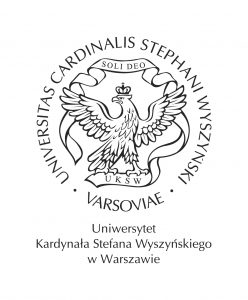
Cardinal Stefan Wyszyński University in Warsaw
Dewajtis 5, 01-815 Warsaw, Poland
phone: +48 22 561 88 56
Bank account: Santander Bank SA
IBAN: PL87 1090 2851 0000 0001 2031 4629
SWIFT: WBKPPLPP
NIP: 525-00-12-946 | REGON: 000001956

Cardinal Stefan Wyszyński University in Warsaw
Dewajtis 5, 01-815 Warsaw, Poland
phone: +48 22 561 88 56
Bank account: Santander Bank SA
IBAN: PL87 1090 2851 0000 0001 2031 4629
SWIFT: WBKPPLPP
NIP: 525-00-12-946 | REGON: 000001956



